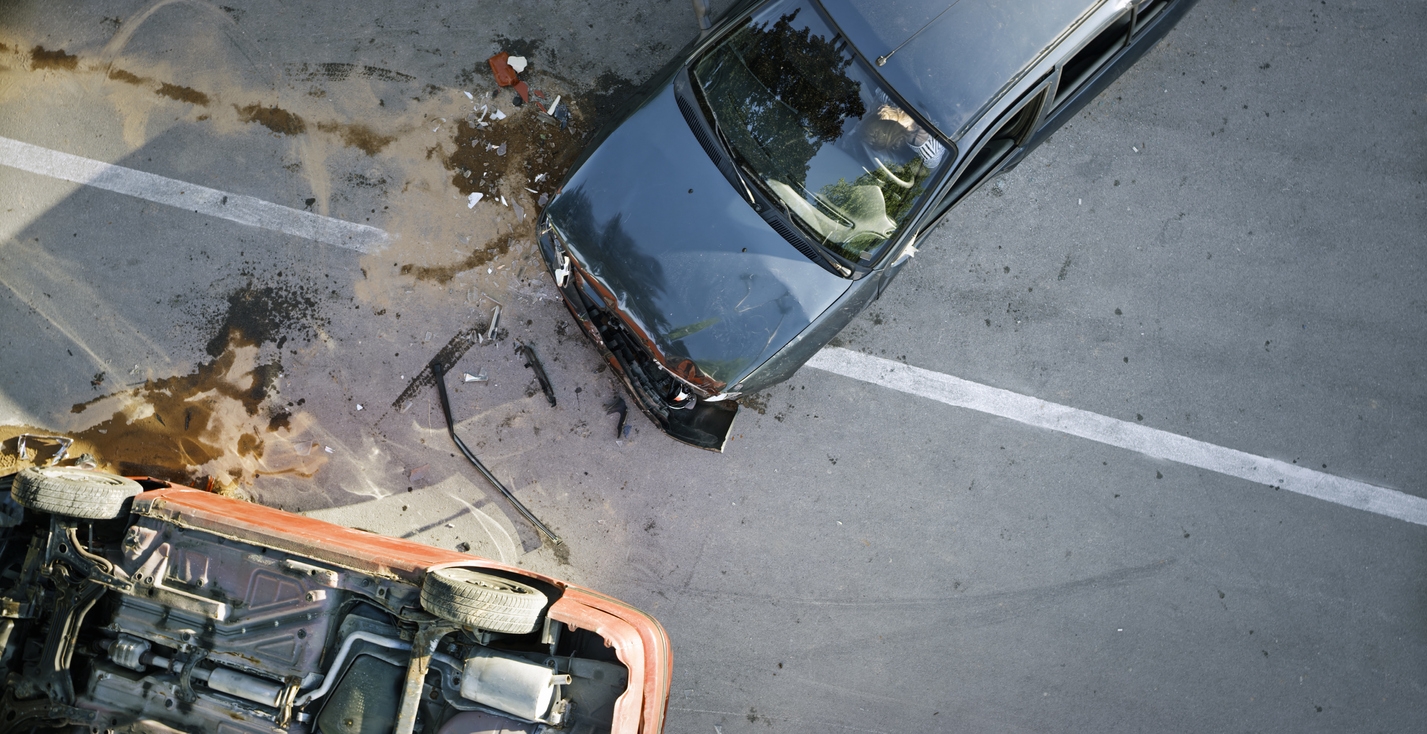
New Jersey Car Accident Lawyer
Table of Contents
- Auto accidents and personal injury overview
- Common Types of Collisions & Injuries
- Getting Compensation Through Your Insurance
- Basic vs. Standard Policy coverage
- Summary of Basic Policy vs. Standard Policy coverage
- Negotiating with insurance companies
- Getting Compensation from an At-Fault Driver
- Special Considerations by Vehicle Type
- Choosing a Lawyer
Auto accidents and personal injury overview
Auto accidents happen for many reasons — some of which can’t be avoided. According to the National Highway Traffic Safety Association, however, 94% of serious crashes are due to human error, such as:
- distracted driving (talking on the phone, texting, eating, etc.),
- speeding or breaking other traffic laws,
- falling asleep at the wheel, or
- driving under the influence.
If you were injured in an accident caused by someone else, you should know that New Jersey is a “no fault” auto insurance state.
This means that all New Jersey drivers must carry personal injury protection, or PIP, insurance. That PIP coverage will pay for your auto accident medical costs up to your policy’s limits. This is true regardless of who caused the accident. Depending on your policy, PIP coverage may also compensate you for certain other economic losses, such as lost wages.
Unfortunately, medical expenses from an auto accident are often much higher than PIP policy limits. In this case, you may be able to pursue compensation from the at-fault driver (or their insurance company).
The best way to confirm whether or not you have a valid claim is to consult with an experienced New Jersey personal injury lawyer. A lawyer can also help you negotiate with your insurance company. Insurance companies handle auto accident claims regularly, and their claims adjusters are skilled negotiators. Even if your accident was severe, you may find it difficult getting fair compensation without the help of a lawyer.
What to do after an auto accident
Auto accidents can be scary and confusing, especially if you’re injured. But to make sure you have as much support for your claim as possible, it’s important to take the following steps. These steps will give you the best chances of recovering the most compensation for your injuries.
Common mistakes to avoid
In addition to the steps above that you should take, there are several things you should not do after an accident. These actions can seriously harm your case and your ability to get the proper amount of compensation. Below are a few common examples of these mistakes.
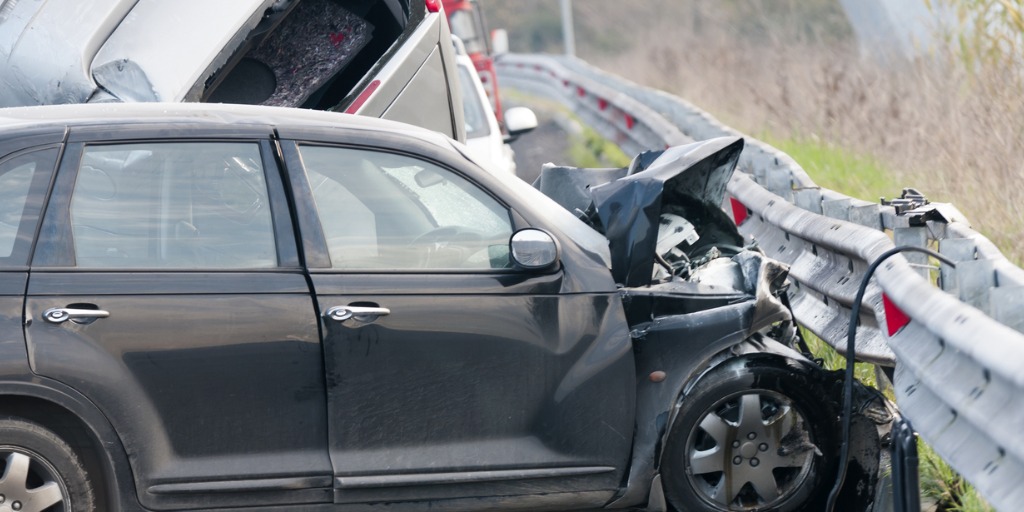
Case Study: $21 Million Award
What makes this case unique: Defense witness testified in favor of plaintiff; judge was a former Attorney General who had lost a substantial case to Mr. Rosenblum years earlier; Appellate Court actually increased the award amount.
Traffic tickets and auto accidents
Traffic violations play a role in many auto accidents. In fact, traffic tickets are often issued at the scene of an accident. Common violations include:
- Cell Phone Use (N.J.S.A. 39:4-97.3)
- Driving While Intoxicated (N.J.S.A. 39:4-50)
- Failure to Signal Lane Change (N.J.S.A. 39:4-126)
- Failure to Yield (N.J.S.A. 39:4-90)
- Failure to Yield to a Pedestrian (N.J.S.A. 39:4-36)
- Following Too Closely (Tailgating) (N.J.S.A. 39:4-89)
- Moved from Lane Unsafely (N.J.S.A. 39:4-88B)
- Reckless Driving (N.J.S.A. 39:4-96)
- Speed Not Reasonable and Prudent (N.J.S.A. 39:4-98)
- Unsafe Driving (N.J.S.A. 39:4-97.2)
In most cases, however, officers issue tickets after they arrive on the scene of the accident, without actually witnessing the alleged traffic violation. This may be a defense, because in New Jersey the fact that an accident occurred is not enough by itself to prove someone was guilty of a criminal or traffic offense.
Still, even if the officer didn’t witness the violation, it’s possible to be convicted if you admit guilt, or if one or more third parties witnessed the violation.
This is another reason why you should not admit guilt to a traffic violation before discussing the case with your attorney. Pleading guilty to a traffic violation could be used against you in a personal injury lawsuit — even if it was part of a plea bargain. An attorney can help you determine the best way to proceed
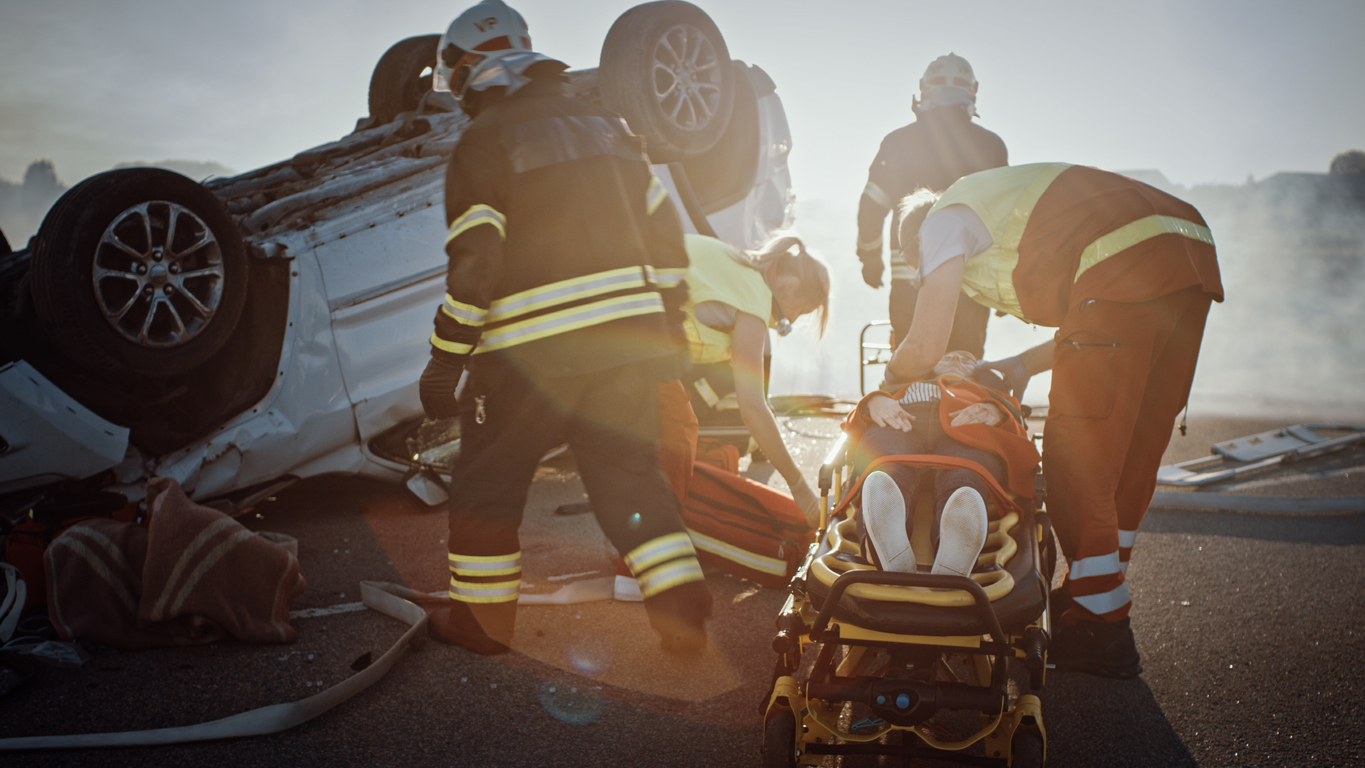
Common Types of Collisions & Injuries
Auto accidents can play out in many different ways. Some are very minor, allowing you to walk away unscathed. Others are very serious, resulting in long-lasting injury, or even death. Below are just a few examples of common types of collisions and injuries.
For the best chances of full and fair compensation, you should get the help of a lawyer who’s familiar with the different types of collisions and common injuries. Understanding exactly how the accident happened and the full extent of your injuries are both crucial to a successful claim.
Common types of collisions
A few common types of collisions are as follows:
Common auto accident injuries
The severity of your injuries is often linked to the type of collision. Some injuries are obvious immediately after an auto accident. But others can take days or weeks to become apparent.
Some common injuries from auto accidents include:
- broken bones
- whiplash
- ruptured or herniated discs or other back injuries
- brain damage
- spinal cord injuries
- dismemberment
- burns
- lacerations and cuts
Many of these injuries require significant medical treatment. You may need to spend time in the hospital, or get surgery, rehabilitation, or physical therapy. You may also not be able to work, take care of your family, or perform your usual daily activities. In other words, your expenses and losses from injuries can add up quickly, and it’s not easy to calculate the full financial impact.
That’s why it’s important to get the help of an experienced NJ personal injury lawyer. They can coordinate with the right medical experts to get a better understanding of your injuries and their immediate and long-term effects. This will help make sure you properly evaluate your losses and get the appropriate amount of compensation.

Getting Compensation Through Your Insurance
If you’re injured in an auto accident, your first stop for compensation should be your own auto insurance company. The amount of compensation you’ll receive from them will depend on your personal injury protection, or PIP, coverage.
Below is a summary of what you should know when pursuing compensation from your own insurance company.
“No fault” insurance
As discussed earlier, New Jersey is one of a handful of states with a “no fault” auto insurance system.
By law, all drivers in the state must have auto insurance with a minimum amount of PIP coverage (also known as “no fault” insurance). If you or someone else covered by your policy is injured in an auto accident, your own auto insurance company will pay for medical bills up to the PIP limit — regardless of who caused the accident.
If your losses exceed your policy’s PIP limit, you may be able to pursue compensation from the at-fault driver. (See Getting Compensation From an At-Fault Driver.)
Depending on your policy, PIP may also cover other economic losses like lost wages. Non-economic damages such as pain and suffering are not covered.
Even if PIP covers your expenses, you’ll still have to pay a certain amount of your claim out of pocket in the form of a deductible and copayment. The details about your deductible and copayment are included in your policy.
Basic vs. Standard Policies
When purchasing auto insurance, you generally must choose either a Basic Policy or a Standard Policy. Under New Jersey law, drivers must at least have a Basic Policy, which offers less protection than a Standard Policy.
Below are more details about each type of policy. Note that it’s also possible to choose your health insurance as your primary source of coverage for auto accident injuries. If you choose this option, your coverage will vary based on your health insurance policy.
Basic Policy
A Basic Policy is cheaper than a Standard Policy, but it’s not for everyone. Losses from an auto accident can quickly go over the coverage limits in a Basic Policy.
The Basic Policy includes the following coverage:
Note that without Bodily Injury Liability coverage, if others are injured in an accident that you cause, you’ll be responsible for paying losses not covered by the injured persons’ PIP insurance.
Likewise, if you’re injured in an accident caused by a driver with only a Basic Policy, you may not be able to file a claim with their insurance for medical expenses not covered by your PIP. In that case, you may be able to file a personal injury lawsuit against the at-fault driver to cover the additional costs. You’ll need the help of a personal injury attorney to do this.
If you have a Basic Policy, you can’t file a lawsuit against the at-fault driver for non-economic damages such as pain and suffering unless you suffered:
- loss of a body part
- significant disfigurement or significant scarring
- displaced fracture
- loss of a fetus
- other permanent injury (i.e., when a body part or organ hasn’t healed to function normally and will not heal to function normally with further medical treatment)
- death
Standard Policy
Most drivers in New Jersey choose a Standard Policy. A Standard Policy includes:
Limited Right to Sue vs. Unlimited Right to Sue option
If you get a Standard Policy, you’ll also have to decide whether to choose the Limited Right to Sue option (also known as “Limited Tort”) or the Unlimited Right to Sue option (also known as “Full Tort”).
The Limited Right to Sue is cheaper. But with this option, you can only sue an at-fault driver for pain and suffering if you sustain one of the following injuries:
- loss of a body part
- significant disfigurement or significant scarring
- displaced fracture
- loss of a fetus
- other permanent injury (i.e., when a body part or organ hasn’t healed to function normally and will not heal to function normally with further medical treatment)
- death
Even with this option, you can sue an at-fault driver for economic damages such as medical expenses if they exceed your own insurance coverage.
If you choose the Unlimited Right to Sue, you can sue someone who caused an auto accident for all types of losses, including pain and suffering, for any injury.
Other optional PIP coverage under a Standard Policy
PIP coverage always provides compensation for medical expenses. You also have the option to purchase additional PIP benefits under a Standard Policy that are not available under the Basic Policy. These include:
Uninsured/underinsured motorist coverage
If you have a Standard Policy, you’re required to have at least $5,000 in Uninsured/Underinsured Motorist coverage. You can also buy more coverage, but it can’t be higher than your liability coverage limits.
If you only have a Basic Policy, you don’t have any coverage for your losses in an accident caused by either an uninsured or underinsured driver.
Summary of Basic Policy vs. Standard Policy coverage
Below is a summary of the different types of coverage available under both a Basic Policy and Standard Policy:
| Coverage: | Basic Policy: | Standard Policy: |
|---|---|---|
| Personal Injury Protection | $15,000 per person, per accident; Up to $250,000 for certain injuries(1) | Minimum coverage $15,000 per person or accident; Maximum coverage $250,000 or more Up to $250,000 for certain injuries regardless of selected limit(1) |
| Bodily Injury Liability | Not included, but can buy optional $10,000 coverage for all persons, per accident | Minimum coverage $15,000 per person and $30,000 per accident; Maximum coverage $250,000 per person and $500,000 per accident |
| Uninsured/Underinsured Motorist | $5,000 per accident | Minimum coverage $5,000 per accident; Maximum coverage $100,000 or more |
| Right to Sue | No right to sue the person who caused the accident for pain and suffering, unless you sustained certain permanent injuries(2) | Option to choose either: Unlimited Right to Sue (right to sue the person who caused the accident for pain and suffering for any injury); or Limited Right to Sue (no right to sue the person who caused the accident for your pain and suffering unless you sustained certain permanent injuries(2)) |
1. The $250,000 coverage for certain injuries is only required in the case of medically necessary treatment of:
- permanent or significant brain injury
- spinal cord injury
- disfigurement
- other permanent or significant injuries at a trauma center or hospital immediately after an accident and until you’re stable and no longer require critical care
2. Qualifying injuries include:
- loss of a body part
- significant disfigurement or significant scarring
- displaced fracture
- loss of a fetus
- other permanent injury (i.e., when a body part or organ hasn’t healed to function normally and will not heal to function normally with further medical treatment)
- death
Negotiating with insurance companies
If you need to make an auto accident claim, keep in mind that even your own insurance company may not have your best interests in mind.
Insurance companies are focused on protecting their own financial interests. They want to pay as little as they can, without going to court. That means you can’t rely on them to provide advice or fair compensation for your losses. They also deal with auto accident claims on a regular basis, which gives them an advantage against you in negotiations.
That’s why it’s best to have a personal injury attorney communicate with the insurance company on your behalf. You shouldn’t even give a detailed statement or sign a release for your medical records until you’ve consulted a lawyer. The insurance company will be digging for details and information that could damage your claim and allow them to pay less.
An experienced attorney will be able to make sure that the insurance company handles your claim the right way. And if they can’t reach a fair settlement, they’ll also be able to file a lawsuit for you.
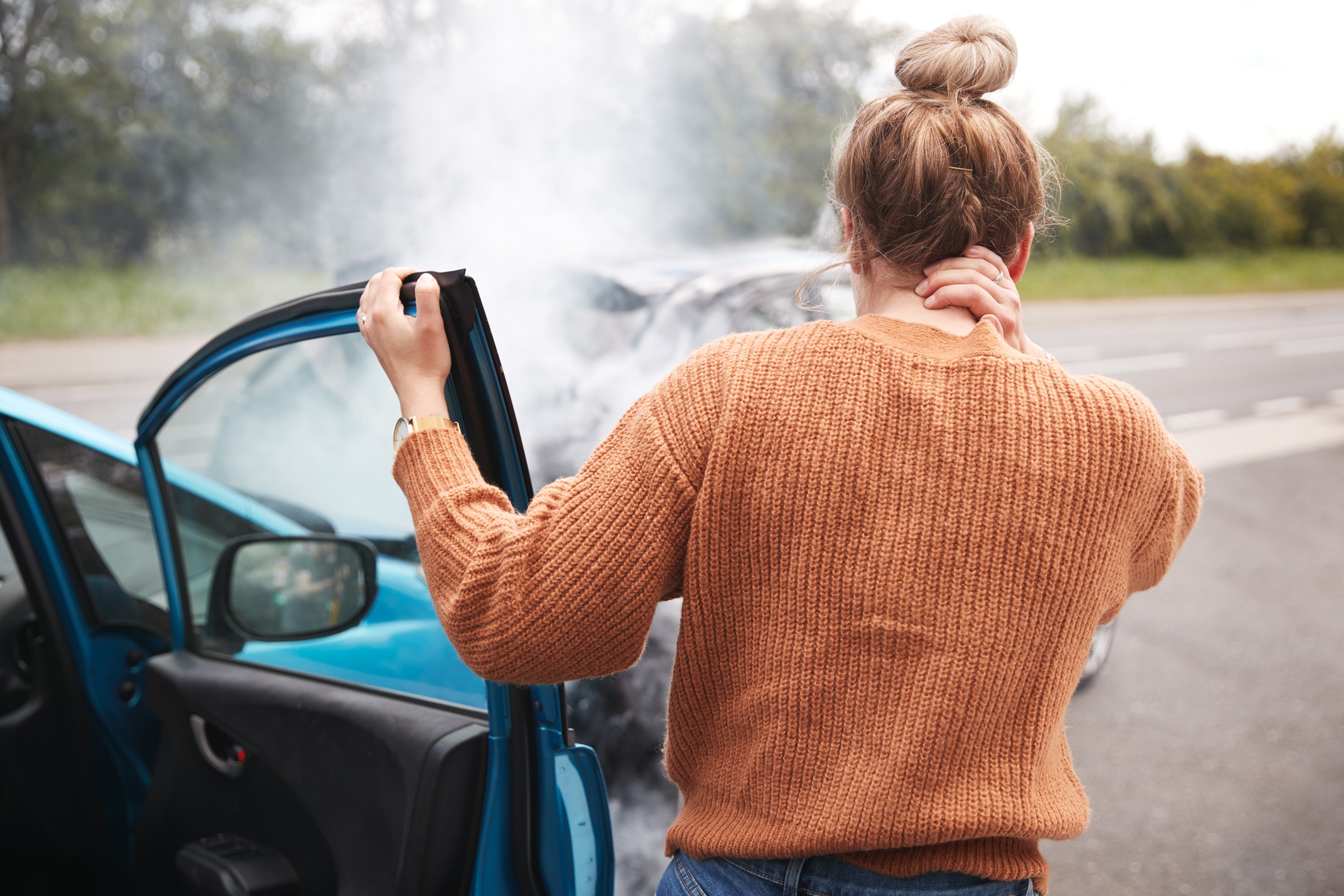
Getting Compensation from an At-Fault Driver
Auto accident victims often end up with medical expenses that are far more than their PIP coverage. In this case, you may be able to pursue compensation from the at-fault driver (or his or her insurance company). If your policy allows it, you may also be able to seek non-economic damages like pain and suffering.
If no one in the accident has auto insurance, the drivers driving illegally without insurance generally won’t have a case. But passengers may also be able to get compensation through a special state fund called the New Jersey Property Liability Insurance Guaranty Association, or NJPLIGA.
Below is a summary of what you need to know when considering a claim against an at-fault driver.
Statute of limitations
If you’re injured in an accident, you should start the claims process as soon as you can. If you need to file a personal injury lawsuit, in New Jersey you generally only have two years from the date of the accident to do so. This time limit is called the “statute of limitations.”
While this may seem like plenty of time, working directly with insurance companies to get compensation may take longer than you think.
To make sure you have enough time to file a lawsuit if needed, you should consult with an attorney as soon as possible after your accident. This is especially important if a New Jersey government employee or agency is involved. To sue a government entity, a Notice of Claim must be filed within 90 days of your accident.
Once the statute of limitations has lapsed, you’ll likely no longer be able to file a lawsuit. It may still be worth it to consult with an attorney, however, as limited exceptions may apply to your case.
Valuing a personal injury case
To properly value your case, you’ll have to wait until you’ve reached “maximum medical improvement.” This means you’ll have to recover completely, or as fully as you’re likely to. Some injuries will have long-term or lifelong effects, such as pain, scars or disfigurement, or disability. Some injuries may also require ongoing treatment to provide temporary relief or prevent further problems.
You can only assign an appropriate value to your case if you can establish the costs of all past and any expected future treatment.
You’ll also have to decide whether to sue for pain and suffering. This will depend on the circumstances of your case, including the type and severity of the injury. Pain and suffering damages may be especially appropriate for injuries that cause a great deal of pain, distress, or long-term hardship. You’ll need the help of an experienced personal injury lawyer to make this determination.
Proving a personal injury case
To win a personal injury case, you have to prove four things (called “elements”):
- You were injured;
- The party you’re suing had a duty to you;
- The party you’re suing breached that duty; and
- That breach of duty caused your injury.
All drivers have a duty to others on the road to drive safely and obey traffic laws. And a driver breaches that duty when they drive negligently or recklessly.
Under New Jersey Civil Jury Instruction 5.10A, “negligence” is defined as a “failure to exercise, in the given circumstances, that degree of care for the safety of others, which a person of ordinary prudence would exercise under similar circumstances.”
Examples of negligent driving include speeding, distracted driving, driving while fatigued, or driving under the influence.
Insurance companies and juries in a lawsuit will look at all the evidence to determine negligence. This may include:
- photos or video of the accident
- police report details
- witness statements
- traffic camera or surveillance footage
- dashcam footage
- breath, blood, or urine test results for drugs or alcohol (see: accidents from drunk drivers)
- cell phone records (to prove that a party was on a call or texting during an accident)
Sometimes negligent road conditions also cause or contribute to an accident. In this case, the municipality or other party responsible for maintaining the road may also be responsible. Such issues may include, among others:
- damaged roadways, like potholes
- poorly placed traffic signs or signals
- broken signals
- poor lighting
Pursuing claims against municipalities and other government entities involves special procedures. An experienced New Jersey personal injury attorney can help you navigate this process.
The “modified comparative negligence” rule
New Jersey follows a “modified comparative negligence” rule. Under this rule, more than one person may be at fault in an accident.
If you’re injured in an accident in which you’re partially at fault, under N.J. Statute 59:9-4 your damages in a personal injury lawsuit will be reduced by the percentage you’re at a fault, up to 50%. As an example, if you have $100,000 in medical bills not covered by insurance and you’re found to be 30% at fault for the accident, then you’ll only get 70% of the $100,000, or $70,000.
New Jersey’s “modified” rule also means that if you’re found 51% or more at fault, you won’t receive anything at all. In a “pure” comparative fault state, you can still recover damages even if you were more at fault than the other driver.
Insurance companies also use the modified comparative negligence rule when evaluating your case.
Settlements
Most personal injury cases are resolved through a settlement agreement outside of court. The stronger your case, the more likely you are to reach a settlement. But if there are issues around who was at fault or evidentiary problems, sometimes the case will go to court.
Even if you think you’ll reach a settlement agreement, you should still preserve your ability to sue if needed. Sometimes you’ll be forced to file a lawsuit if the insurance company refuses to offer a fair settlement before the statute of limitations expires. If that happens, your attorney can file a lawsuit and continue to negotiate with the insurance company.
Filing a lawsuit can show that you’re serious about getting fair compensation. As a result, insurance companies may be much more reasonable when negotiating. Even if you file for a lawsuit, you can still agree to a settlement at any time before the jury makes a decision — even after the trial has started.
A personal injury attorney can help you make the best decision about whether to accept a settlement or take the case to trial. Once you accept a settlement offer, you’ll no longer be able to pursue the same claim in court, so you should be sure the settlement is the right choice for you.

Special Considerations by Vehicle Type
The type of vehicle involved in your accident often affects the severity of your injuries. It can also affect case strategy, as different laws apply in certain situations. Different types of accidents include:
- car accidents
- trucking accidents
- bus accidents
- taxi or rideshare accidents
- motorcycle accidents
- pedestrian accidents
- bicycle accidents
Below are just a few of the special considerations you should keep in mind when certain vehicles are involved.
If you’re considering pursuing a claim outside of your PIP coverage for any type of accident, you should consult with a New Jersey personal injury lawyer. Your lawyer will be able to identify the special issues in your case and advise you on the best path forward.
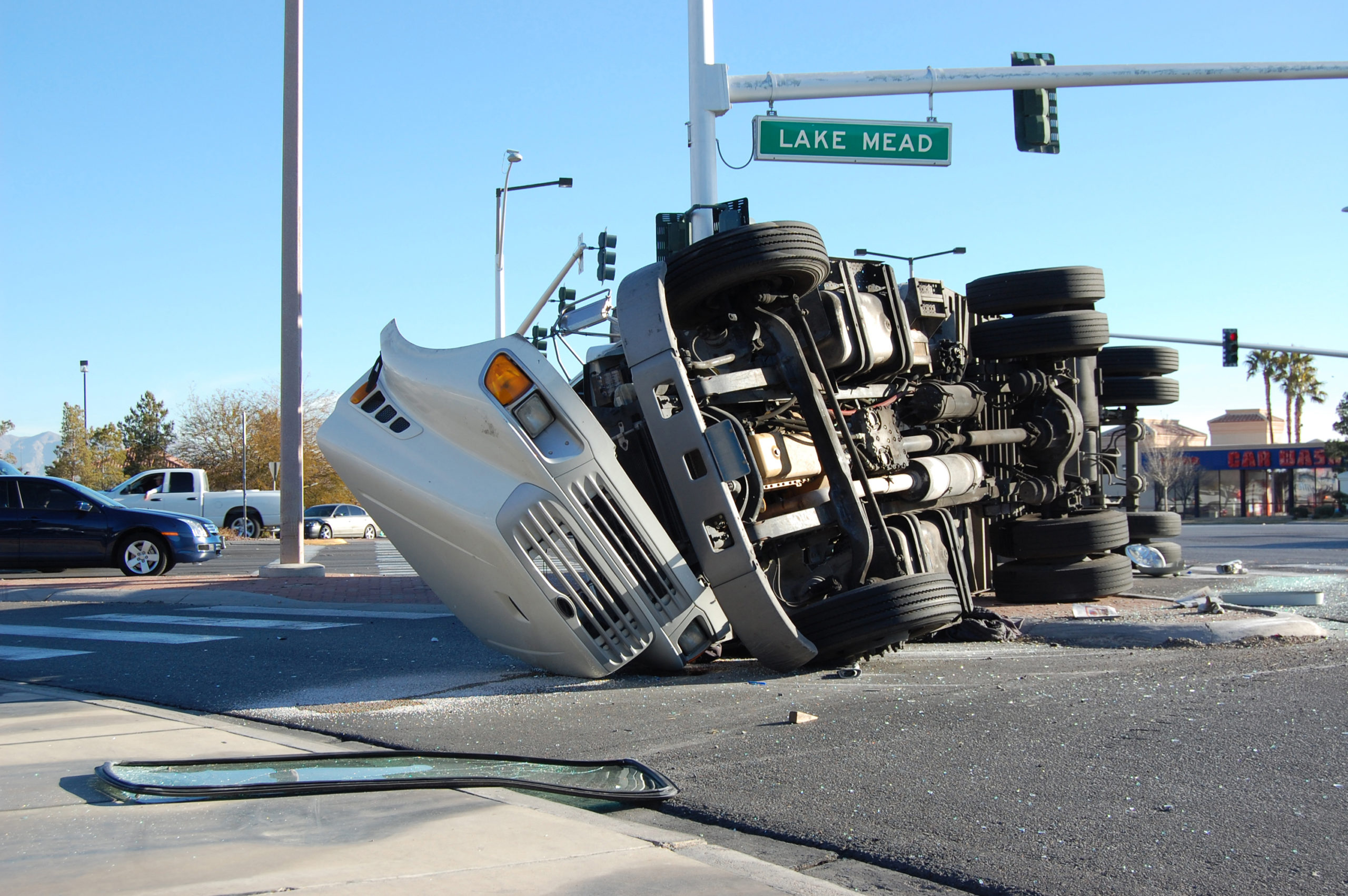
Truck and other commercial vehicle accidents
When you’re in an accident involving a truck or other commercial vehicle, one task is to figure out who may be responsible. There are usually many parties involved, such as:
- the driver
- the owner of the vehicle
- the company leasing the vehicle
- the manufacturer of the vehicle and its parts
More than one of these parties may be responsible for the accident. Making this determination will likely require some industry knowledge and investigation. This is just one reason why hiring an attorney is important in these types of cases.
Your attorney will help gather evidence such as police reports, company records, and safety logs. If needed, your attorney can also get the help of an accident reconstruction expert.
Your attorney will examine all of this evidence to find out if the company or driver violated any safety regulations, or whether the driver was speeding, fatigued, or distracted at the time of the accident.
An attorney will also handle all communications with insurance companies and other third parties. Trucking and other commercial vehicle companies typically have experienced investigators and attorneys on their side. Commercial policies are very valuable, so insurance adjusters working on these cases are usually highly skilled as well. Hiring a lawyer will help ensure that you have an experienced advocate on your side, too.
As with any other kind of auto accident, you should not make any statement (written or oral) to the insurance company before you’ve spoken to a personal injury attorney. You also shouldn’t accept any settlement offer or sign anything that the commercial vehicle company or insurer gives you.
Instead, gather as much information as evidence as you can, including the police report, property damage records, medical records, and missed work records, and consult an attorney as soon as possible.

Motorcycle accidents
Motorcycle accidents often result in severe injuries. Medical expenses can add up quickly.
In most auto accidents, your own auto insurance’s PIP coverage will pay at least a portion of your medical expenses, regardless of who was at fault. But if you’re injured on a motorcycle as an operator or passenger, you generally don’t get PIP benefits — even if a car was involved. Such coverage, when offered, is optional and expensive.
Motorcycle insurance also usually doesn’t cover medical bills or loss of income. Instead, injured motorcyclists usually have to pay their medical bills through their primary health insurer. If you don’t have health insurance, you’re personally responsible for all of your medical bills. If you’re unable to work, you also may not have any income unless you’re covered by New Jersey state disability or a private disability plan.
Given the special rules that apply to motorcycles, you should consult with a New Jersey personal injury lawyer right away. Your attorney can help you identify any potential sources of compensation. For example, you may be able to file a lawsuit and recover medical bills and lost income from an at-fault driver.
Keep in mind that even if you have a valid claim, recovering compensation may take time — sometimes years. In the meantime, you’ll be responsible for shouldering the financial burdens that come with your injuries.
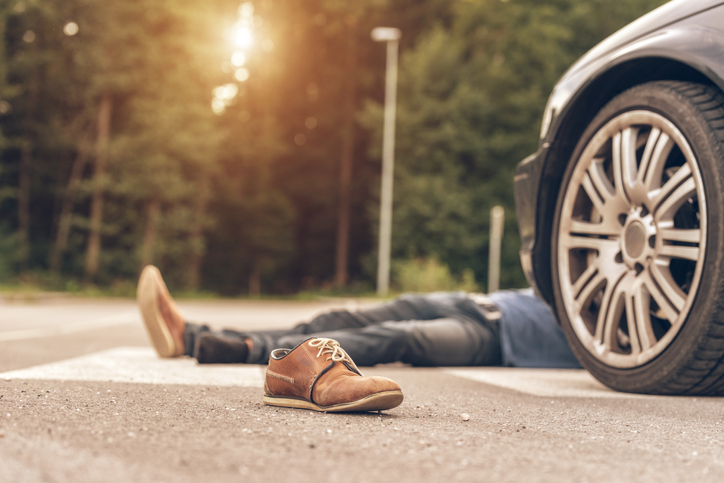
Pedestrian accidents
Both drivers and pedestrians have to follow traffic laws in New Jersey.
For example, under N.J. Statute 39:4-36, drivers in New Jersey must come to a complete stop and stay stopped when there are pedestrians in a crosswalk.
But pedestrians also may not suddenly leave a curb or move into the path of a vehicle that’s so close that it’s impossible for the driver to stop. Pedestrians also have to use crosswalks and obey pedestrian traffic signals. If there’s no crosswalk, you have to yield the right-of-way to vehicles when you’re trying to cross the street. Of course, drivers still have to avoid hitting pedestrians in the street.
If you’re hit by a car as a pedestrian, your medical bills will usually be paid by your PIP coverage up to your policy’s limit. Auto insurance policies pay for medical bills for injuries sustained in an accident “involving” a motor vehicle, even if the injured person wasn’t in a vehicle.
If you don’t have your own auto insurance policy, you should check if you’re covered by the PIP policy of any relatives you live with. If you don’t have PIP coverage under a personal or family policy, the New Jersey Property Liability Guaranty Association, or NJPLIGA, may be a source of compensation for medical bills. NJPLIGA is a special state insurance fund that covers medical expenses in certain situations. It will not pay for your expenses if you own an uninsured car.
Note that if you’re struck by any non-automobile, such as a motorcycle, bus, or commercial vehicle, then the insurance company for the at-fault vehicle pays, even if you have a personal or family auto insurance policy.
You may also be able to seek compensation from an at-fault driver. As with other types of auto accidents, New Jersey’s comparative negligence rule applies to pedestrian accidents. That means if you were partially at fault for a pedestrian accident, your damages may be reduced by your percentage of fault. See Getting Compensation From an At-Fault Driver — The “modified comparative negligence” rule.
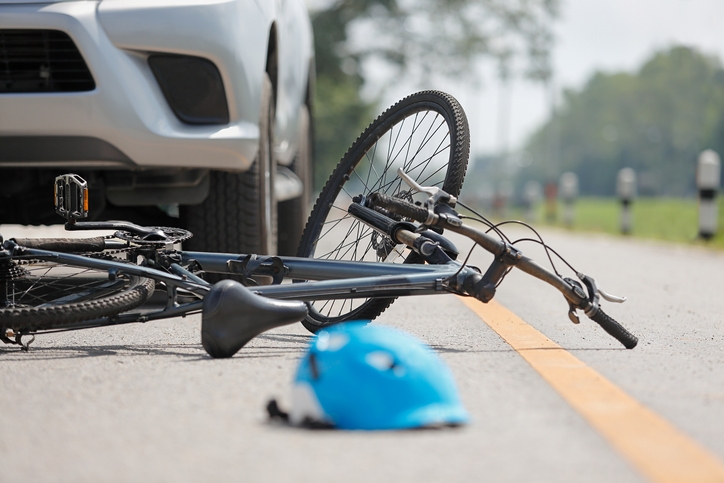
Bicycle accidents
Under New Jersey law, a bicycle is considered a “vehicle.” That means bicyclists have the same rights and responsibilities as motorists. They have the right to be on the road, but they also have to obey traffic laws.
There are also special laws that apply to bicyclists. For example, they must ride as close to the right side of the road as possible.
Bicycle accidents can cause serious injuries or even death, especially if they involve a motor vehicle. “Dooring” is one type of accident in which the driver of a parked car opens his or her door in the path of a bicyclist. Drivers often forget that bicyclists are riding on the right side of the road and fail to check for oncoming cyclists before opening the door.
As in pedestrian accidents, if you were injured in a bicycle accident involving a motor vehicle, your medical bills should be paid by your own PIP insurance up to your policy’s limit. If you don’t have your own auto insurance policy, you should check if you’re covered by the PIP policy of any relatives you live with.
If you don’t have PIP coverage under a personal or family policy, filing a claim with the NJPLIGA for your medical bills may be an option. You may also be able to pursue a claim against the at-fault driver.
A New Jersey personal injury attorney will be able to help you identify the best sources of compensation for your specific case.

Choosing a Lawyer
Pursuing personal injury claims is a complicated process. When you’re recovering from injuries, it can be especially stressful. To make sure you don’t miss out on valuable compensation, it’s important to get the help of an experienced personal injury attorney. Your attorney will be able to help you:
- identify all your potential sources of compensation for your injuries;
- deal with insurance companies and file paperwork; and
- navigate the court process, if necessary.
What to look for in an attorney
Here are a few things you should look for when hiring a lawyer:
Your attorney should have a deep understanding of personal injury laws and insurance procedures, and how they apply to your situation. During your initial consultation, it’s a good idea to ask how long they’ve been practicing and how many cases they’ve handled.
An attorney who pays proper attention to your case is crucial. Otherwise, they may miss important details that could affect the outcome of your case. Ask during your initial consultation how you’ll be able to communicate with them if needed, and how long they typically take to return your messages. It’s best to get a feeling for how quickly they’ll respond to you before you hire them.
If you’re injured in an auto accident, consulting with a personal injury attorney is almost always a worthwhile investment. But unexpected fees are never welcome. When choosing a lawyer, be sure to ask about their fee structures. Keep in mind that it’s standard for personal injury attorneys to represent clients on a contingency fee basis. That means you won’t pay any attorneys fees upfront. Instead, the attorney will only be paid if they get you compensation through a settlement or trial verdict.
Questions about auto accident injuries in New Jersey?
At Rosenblum Law, we understand the life-changing effects auto accident injuries can have. We’ll help you understand all your options and determine the best course of action for your particular circumstances. If you have a claim, we’ll also guide you through the process and fight on your behalf for maximum compensation.
For a free consultation, call us today at 888-235-9021 or contact us through our website at www.rosenblumlaw.com/contact. We’re passionate about helping all our clients get the compensation they’re owed — and we won’t take a fee unless we win a settlement or verdict for you.
Frequently Asked Questions
If you’ve been injured in an auto accident, you likely have a lot of questions about your case. Below are answers to some common questions we receive about auto accidents in New Jersey, but keep in mind that every case is different. If you’d like to discuss the specifics of your case, you’ll have to contact a New Jersey personal injury attorney.
Under New Jersey’s no-fault auto insurance system, your own auto insurance company is responsible for your medical bills up to your policy’s PIP limit. This is true regardless of who was at fault for the accident.
If you don’t have your own auto insurance, you may be covered by the auto insurance policy of a family member you live with.
If your losses are more than the limits of your insurance coverage, you may be able to pursue compensation from the at-fault driver (or his or her insurance company).
See Getting Compensation From Your Insurance and Getting Compensation From an At-Fault Driver
You should report any accidents to your insurance company. Failing to do this could be a breach of your policy. As a result, your insurance company could raise your rates or even cancel your insurance.
But you should not give any recorded statements until you’ve consulted with a lawyer. In fact, it’s best to hire a lawyer to communicate with the insurance company on your behalf.
When speaking to your insurance company, only provide the facts required by your policy — don’t offer any extra information. If you’re tempted to give an explanation of an answer, you should consult with your attorney to determine the best way to answer the question.
See Getting Compensation From Your Insurance — Negotiating with insurance companies for more information.
Before accepting a settlement offer, you should always consult an attorney. Insurance companies usually prefer to pay a settlement to avoid the time-consuming and expensive trial process. Many plaintiffs also prefer settlements because you can resolve the case and get compensation much more quickly.
But not all settlements are fair. Insurance companies want to protect their bottom lines, so they’re often reluctant to offer full compensation. It’s not unusual for them to undervalue damages or even deny claims. (read about auto accident settlement amounts here)
To properly value your case, you’ll also have to wait until you’ve reached “maximum medical improvement.” This means you’ll have to recover completely, or as fully as you’re likely to. If you accept a settlement before you can establish the costs of all past and any expected future treatment, you could lose out on valuable compensation.
A personal injury attorney can help you make the best decision about whether to accept a settlement or take the case to trial. Once you accept a settlement offer, you’ll no longer be able to pursue the same claim in court, so you should be sure the settlement is the right choice for you.
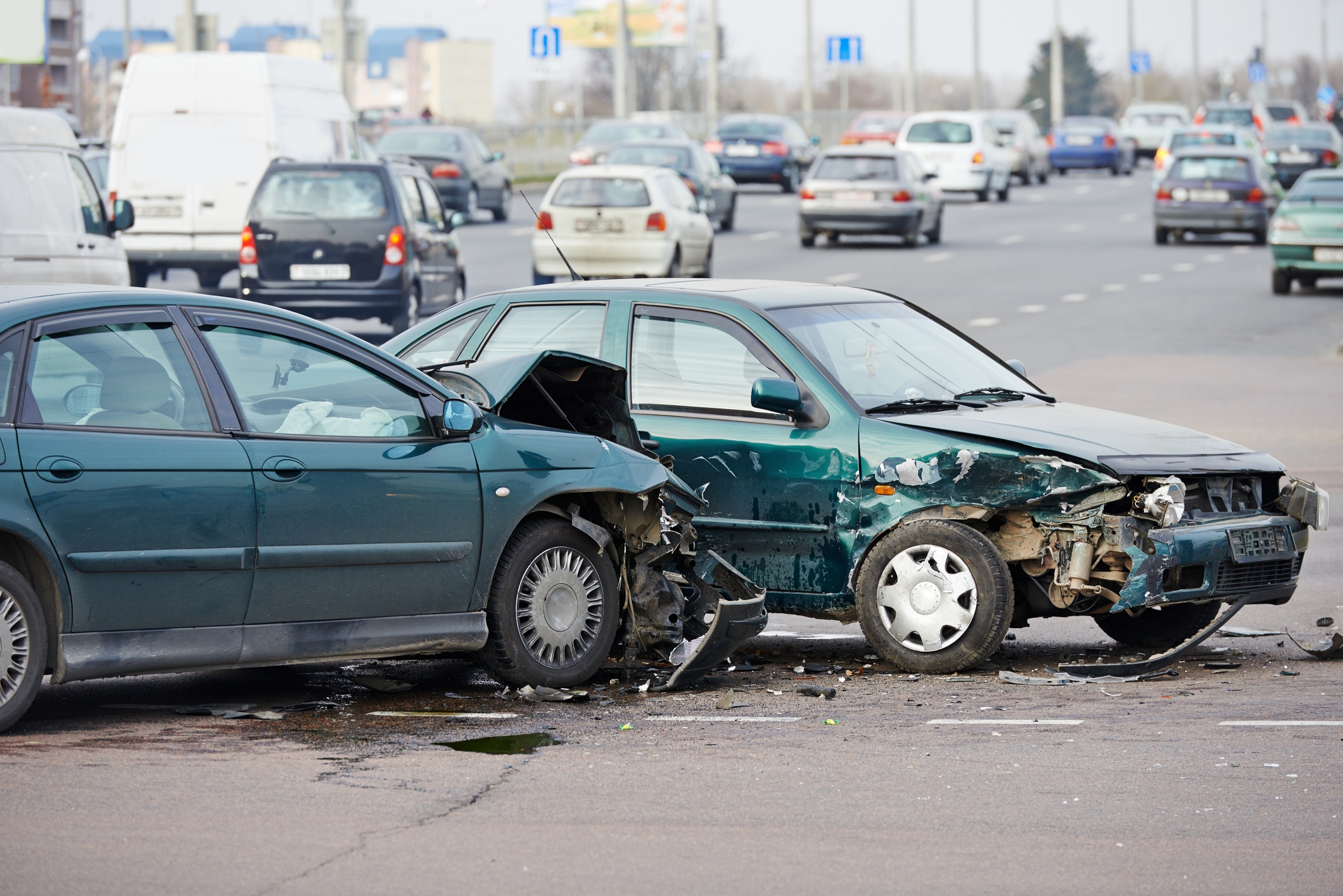









 888-815-3649
888-815-3649
